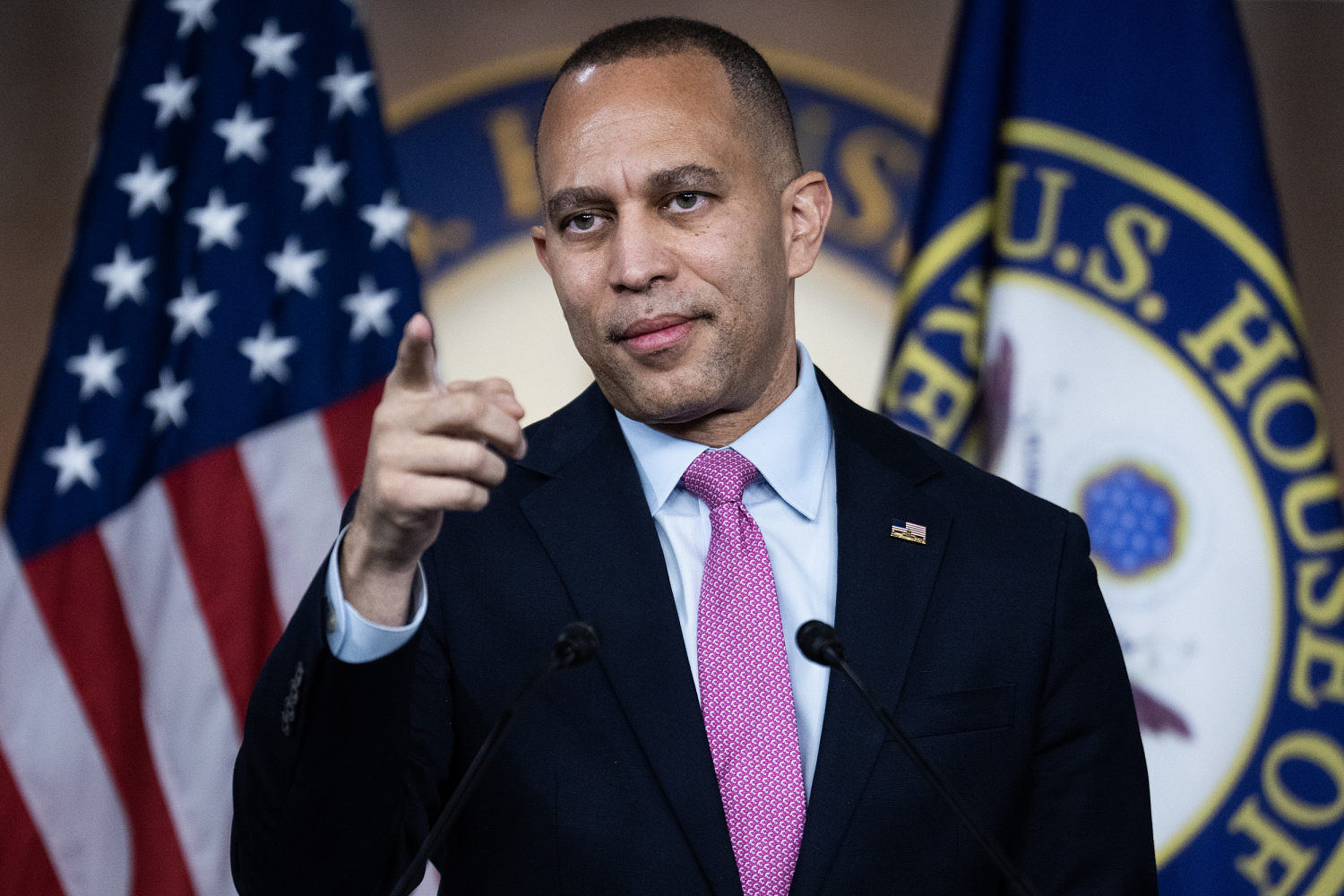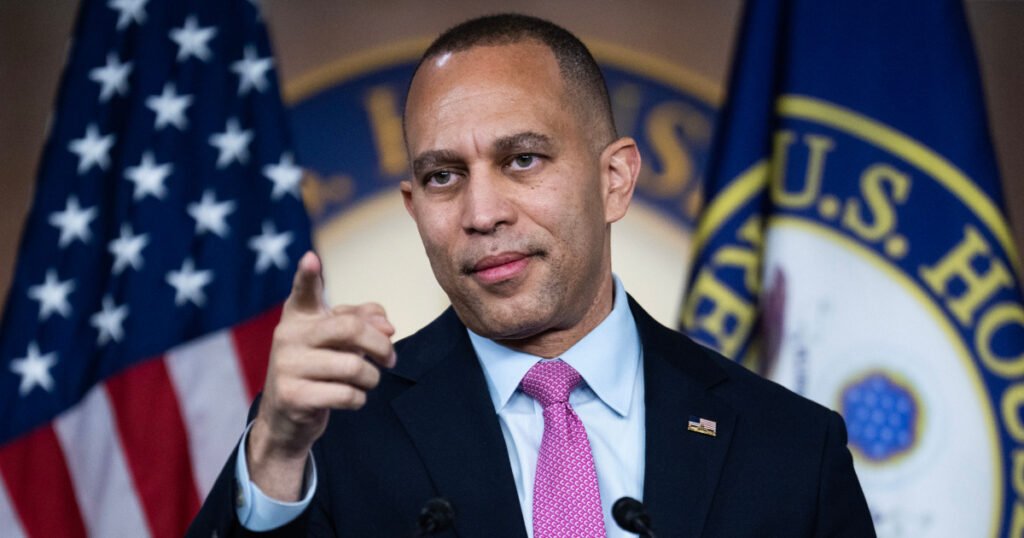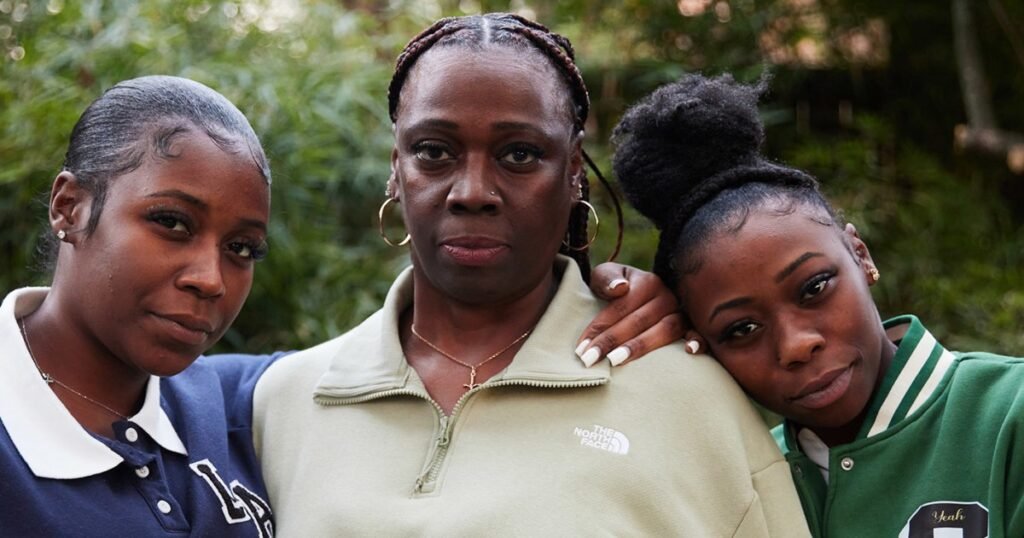
WASHINGTON — Less than 48 hours after President Donald Trump was inaugurated, House Minority Leader Hakeem Jeffries held a closed-door meeting with Democratic lawmakers to issue a warning and a clarion call.
The new administration was going to “flood the zone,” and Democrats couldn’t afford to chase every single outrage — or nothing was going to sink in for the American people, Jeffries told them, according to a person in the room who requested anonymity to discuss the private meeting.
Jeffries, D-N.Y., urged members to focus their message on the cost of living, along with border security and community safety.
“The House Republican Contract Against America is an extreme plan that will not lower costs for everyday Americans,” Jeffries told reporters the next day, referring to the GOP agenda and spending cuts it is weighing. “It will make our country more expensive.”
Burned by their failures to end the Trump era the first time, Democrats are crafting a new playbook for his second administration that departs from the noisy resistance of his first presidency. The new approach, according to more than a dozen party leaders, lawmakers and strategists, will be to zero in on pocketbook issues as they lay the groundwork for the 2026 midterm elections and beyond. And they plan to focus less on his cultural taunts and issues that don’t reach the kitchen table.
The strategy will test Democrats’ ability to break through in a cluttered and rapidly evolving information environment. It will also clash with the wishes of some progressive members and activist groups, who want to make a firm stand against Trump’s aggressive migrant deportations and his rollback of transgender rights. But postelection surveys indicate that apart from dissatisfaction with inflation, those two issues fueled Trump’s win as he cast Democrats as out of touch with ordinary voters.
The party is less inclined to die on either of those hills. Indeed, Democrats from swing states and districts helped Republicans pass the Laken Riley Act, a bill aimed at clamping down on undocumented immigrants who commit nonviolent crimes. And Democrats, led Rep. Sarah McBride, D-Del., the first openly transgender member of Congress, have parried GOP taunts over trans rights by calling them an attempt to distract voters from a hollow economic agenda.
Sen. Adam Schiff, D-Calif., who was in many ways the face of the first resistance to Trump, agreed with the approach.
“I think we have to pick our fights and not chase after every crazy squirrel,” Schiff said in an interview.
As the House Intelligence Committee’s top Democrat, Schiff was a fixture on TV during Trump’s first term as he managed the first Trump impeachment. But now, Schiff said, the resistance must evolve.
“The renaming of the Gulf of Mexico and other absurdities like that we just let go,” he said. “But the stuff that really matters — the trade wars that are going to raise costs on people, the mass deportations that are going to raise food prices and cause suffering among huge numbers of families, the pardoning of criminals who beat police and now the focus on tax cuts for really rich people that will do nothing for working families. These are the big fights that we need to focus on.”
Unlike in their first defeat to Trump in 2016, this time Democrats lost the popular vote and saw their vaunted “Obama coalition” break into pieces, with many working-class voters and Latinos fleeing to Trump. There was no Russia investigation or foreign interference operation to blame this time.
Many of those voters cited inflation as a reason for throwing their support to Trump. Dissatisfied with the cost of living under President Joe Biden and nostalgic for the pre-pandemic economy, they decided to give him another chance.
Democrats’ mission is to win back those voters by proving that Trump has no plan to improve their livelihoods and might only make things worse.
After Trump delivered his lengthy inaugural speech, Rep. Nancy Pelosi, D-Calif., the former House speaker, issued a statement highlighting “what he didn’t mention” — “his promised tax cuts for the rich.”
Top Democrats are zeroing in on the massive party-line bill that Republicans are crafting to pass Trump’s agenda, describing it as a tax cut for his wealthy friends that could be paid for by cutting safety net programs that middle-class people rely on.
They point to a 50-page document circulated by the House Budget Committee, first reported by Punchbowl News, that outlines a bevy of spending cuts — including to Medicaid, the Affordable Care Act and the SNAP program — to help finance its agenda for tax breaks, immigration funding and more.
“As the saying goes, ‘If you’re not at the table, you’re on the menu.’ So, it’s no surprise from looking at Donald Trump’s cabinet of millionaires and billionaires that America’s middle class is on the menu,” Senate Minority Leader Chuck Schumer, D-N.Y., said in a statement responding to the document.
Sen. Brian Schatz, D-Hawaii, a member of the Democratic leadership team, begrudgingly admitted Trump is talented at distracting his critics by making them chase shiny objects. This time, he said, the resistance needs to focus on the GOP economic agenda.
“We are going to talk every day and every week about what a rip-off this whole enterprise is,” Schatz said in an interview.
“One of the things that congressional Democrats have done poorly, frankly, is that we talk about one thing one week and then something else the following week,” he said. “And I think that’s especially the dynamic with Trump in charge, because he’s extraordinarily skillful at commanding attention. And so one of the things that we’re going to make a conscious effort to do is: Whatever else is going on, our message is going to be: They are ripping you off.”
Source link



